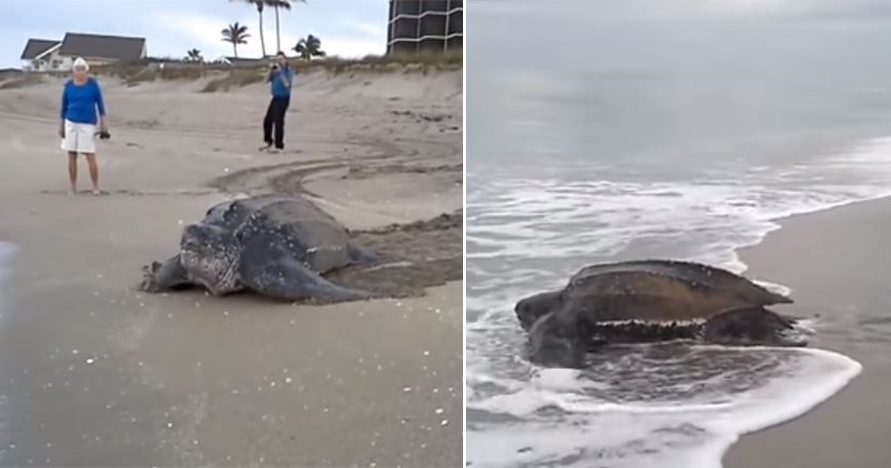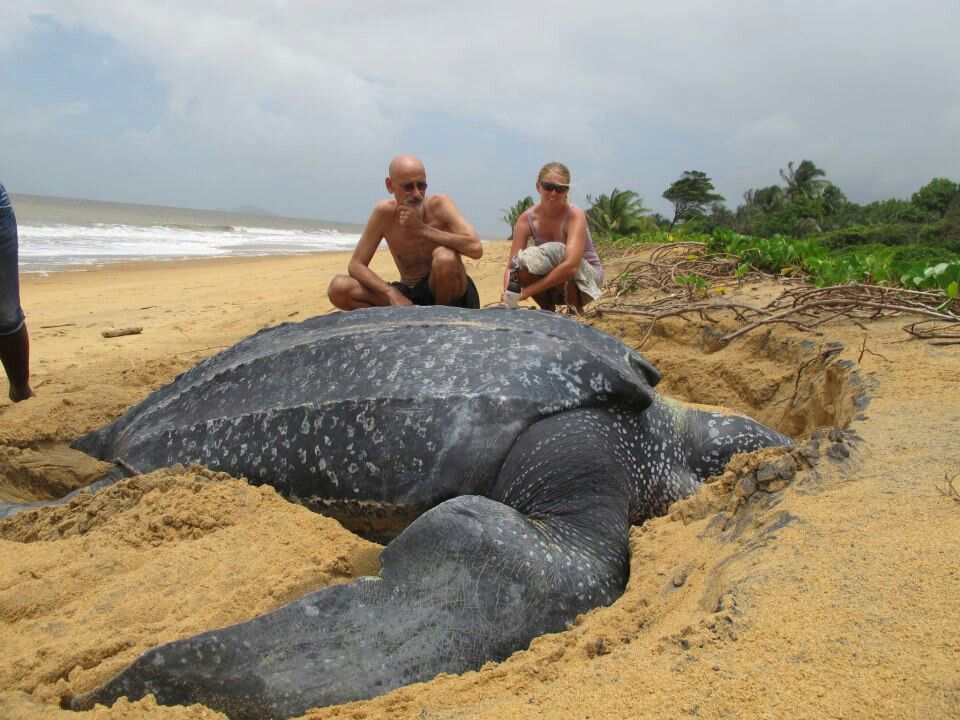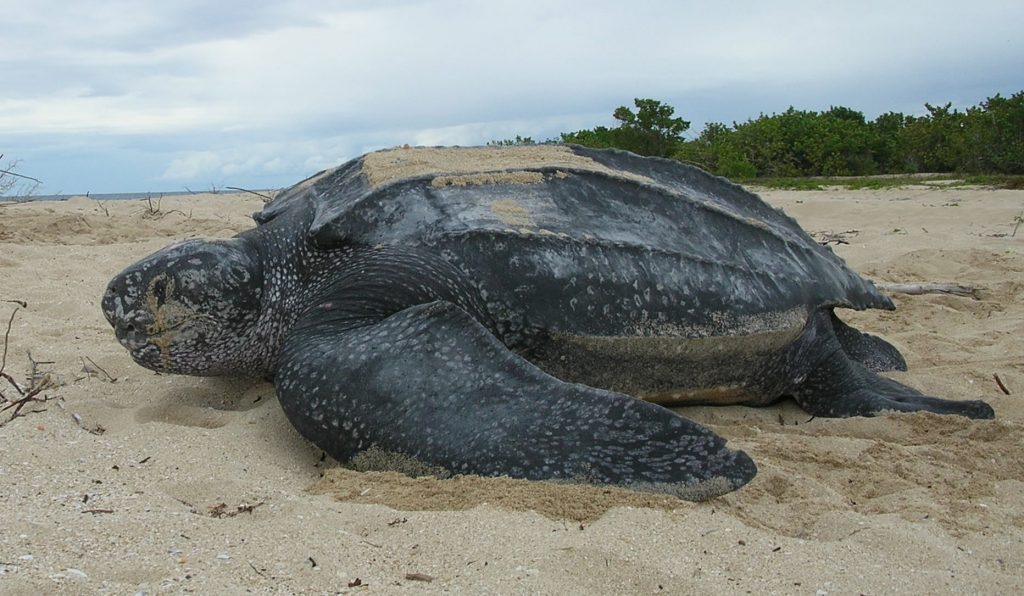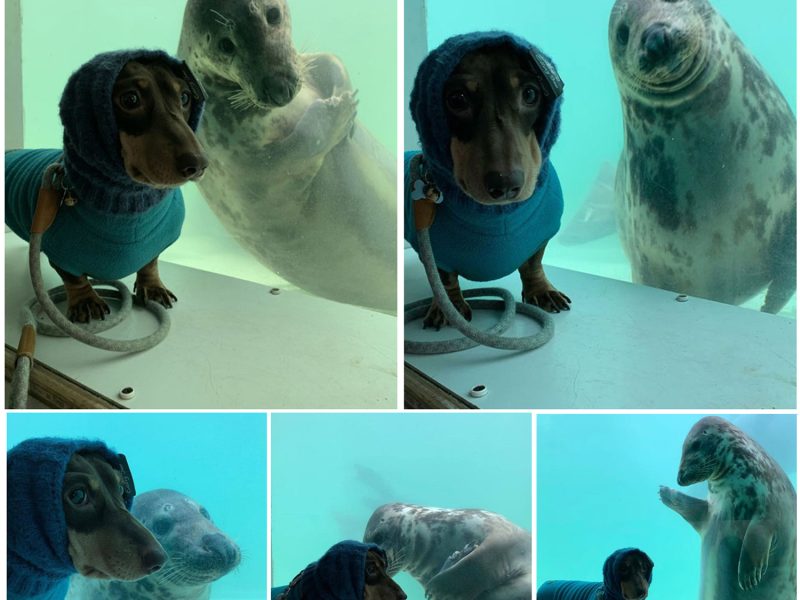
The largest of all sea turtles and one of the largest reptiles on earth, the leather back turtle ranges in size from 4-8 feet in length and weighs between 500-2,000 pounds.
The oldest of all sea turtle species, it has been around for more than 150 million years. They survived the extinction of dinosaurs and thrived until the last several decades when human interactions have taken a major toll.

This video captured an amazing moment wherein a gigantic leatherback turtle came up to the shore for a brief downtime in the sand.
The footage was filmed at an undisclosed location and appears to have been forgotten by the media for the most part, although a few independent sources publicized it.
Several tourists looked on with enthusiasm as the enormous creature used its flippers to crawl across the beach and make its way back towards its home – the ocean.

After a few tries and a couple of pitstops to get back into the water, the sea turtle was finally able to reach the waves and swim off into the great, big ocean, most likely never to be seen again by those people.
Leatherbacks are found throughout the Pacific, Atlantic, and Indian Oceans. Although their distribution is wide, numbers of these turtles have seriously declined during the last century as a result of intense egg collection and fisheries bycatch. IUCN since listed them as vulnerable or endangered.
During nesting seasons, the female leatherbacks crawl out of the ocean, stay close to shore for 3-4 months, and make repeated visits at 10-day intervals to lay eggs.
About 55-60 days after the female lay eggs, hatchling turtles emerge from their nests, head to the sea, and follow ocean currents to pelagic nursery habitats where they search for food and seek refuge from predators. They only reach maturity after 15-25 long years.
Just a simple Wikipedia entry about these turtles is engrossing. According to Wikipedia:
“The leatherback sea turtle (Dermochelys coriacea), sometimes called the lute turtle or leathery turtle or simply the luth is the largest of all living turtles and is the fourth-heaviest modern reptile behind three crocodilians. It is the only living species in the genus Dermochelys and family Dermochelyidae.
It can easily be differentiated from other modern sea turtles by its lack of a bony shell, hence the name. Instead, its carapace is covered by skin and oily flesh. Dermochelys is the only extant genus of the family Dermochelyidae.”
Humans will probably be a whole lot thriving and spiritually sound if they devote more time with other living creatures looking at nature, trying to figure out the enigma that is life and analyze how species like the leatherbacks manage to thrive long.


